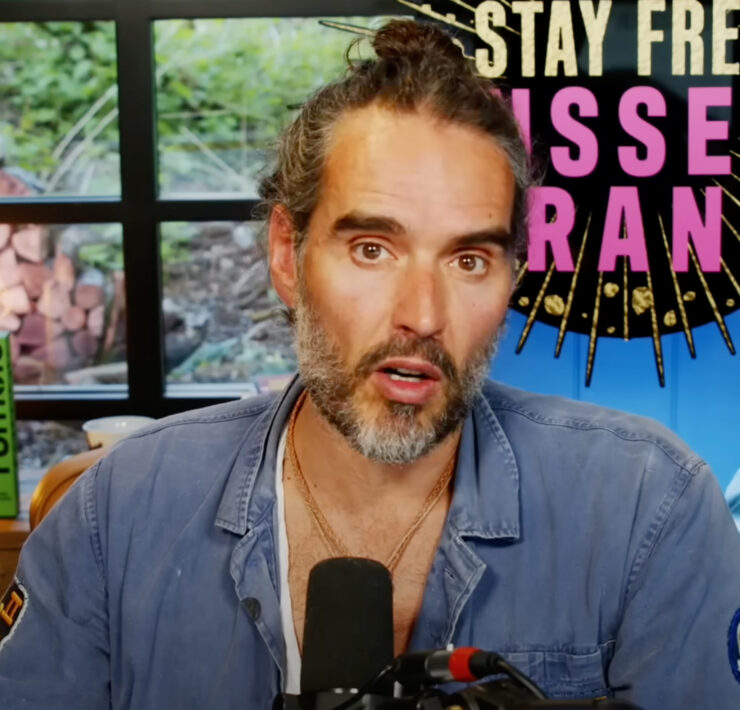I had so much baggage as a child it nearly killed me.
I moved 10 times before the age of 7. I didn’t talk until I was 4, had my first panic attack at 6, turned anorexic at 9, and nearly died at 13. My grandma committed suicide when I turned 18, I relapsed into anorexia at 22, and became addicted to wine and sleeping pills at 24. I dealt with my pain by lugging it everywhere I went.
Many of us do this—we carry around the pains of our past like overpacked suitcases. The church is full of believers bent over for the weight of their sin. I think of Pope John Paul II who said, “We are the Easter people,” but we haven’t quite made it to Resurrection Sunday.
No, we cling to our baggage, to the death of Good Friday, convinced it makes us more spiritual. And yet Jesus tells us His yoke is easy. I’m beginning to think this Christian journey is supposed to be more about joy than suffering. More about the looking up, than the bending down.
Yet there’s safety in holding onto what we know—as burdensome as it is—versus dropping it and having nothing. We all have stories that pulse with joy and pain, and for some reason, it’s easier to cling to the pain. It’s the pain that finds its way into our suitcases.
The load on my back was not unlike the two hiking backpacks I stuffed with clothes one year on a trip to Thailand with my husband. They were so heavy we ended up emptying them halfway into our trip, because we couldn’t enjoy the journey. We over-pack out of fear—fear of the unknown, fear of being hurt or unprepared, fear of needing something or someone. But in doing so, we fail to enjoy the journey.
Perhaps God wants us to do as my husband did, a few months later, to leave behind our heavy, overstuffed bags and travel with just a toothbrush, a pair of boxers and a passport. But this means trusting the journey, and that comes hard when you’ve been burned.
Growing up as a pastor’s kid, I learned to hide so that no one could see what I was really thinking or feeling, and lean on no one. I saw the underbelly of the Church—I saw people who said one thing and lived another, and it formed one of my core beliefs: People are hypocrites.
Eventually, all of the pain I was carrying around—the spiritual garbage I’d collected with nowhere to dump it—got too heavy and I fell over.
I was 13 when God reached down to the hospital bed where I lay, hypothermic and 60 pounds and He tenderly lifted my load, for just a second, and said, “I’m not like them.” For all of the Sunday School and sermons and Bible studies, I hadn’t really met God. I hadn’t been given a chance to get to know Him because people were so busy telling me who He was. This Jesus, whose burden is light, He visited me there in the hospital, and He said He wanted me to live.
So I stopped dying, but I wasn’t quite ready to live, either. I still clung to the baggage—all of that resentment and unforgiveness and fear. Then my mom contracted brain cancer, and at 27 I moved home to take care of her. I needed my arms free to lift her and carry her to her bed and to the bath and to help her eat, and so some of the luggage fell by the wayside. I sat weeding mom’s gardens with my dad, listening to him tell me all the names of the flowers and realizing this reverend was human, just like me. And more baggage got left behind.
And then I gave birth—something doctors had said I wouldn’t be able to do because of the anorexia—and I dropped even more of the past because I needed to be free to carry my child. I had a baby in my arms, I had life in my arms, I had love in my arms.
The secret to letting go of your past is to discover a purpose that supersedes your greatest fear. And that purpose is rooted in love. The Bible says perfect love casts out fear. It cast out fear of other people, of sin, judgment and hypocrisy, because the more I loved, the more I realized my value was not measured by the Church’s standards, but by God’s sacrifice. And He sacrificed everything.
How many of us are so busy holding onto the past that we can’t open our arms to love? How many of us long to drop our baggage, yet don’t, because we’re afraid we won’t know who we are without it?
Storyteller Al Andrews says that everyone’s story mirrors the first few chapters of Genesis. All of us are born into paradise until one day, the snake enters and steals our innocence and joy. But that’s not the end of the Gospel, that’s not the end of the story, because we serve a God who paid the price for us to re-enter the garden. Our past does not determine our future. Love compels us to re-enter paradise, to once again walk with God without shame, without hiding, without baggage.
My husband and I do a lot of hiking, and he is always reminding me to stop watching my feet for fear of tripping over a root or a rock.
“Look up,” he tells me gently as we wind the mountain path. “I don’t want you to miss the beauty.”
Love whispers the same to you: “Look up,” —and oh, the beauty that awaits us.























